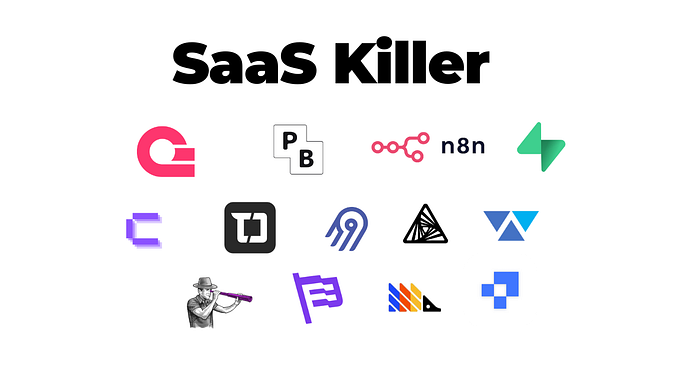Ruby Protocol Monthly Review — October 2022
Welcome back to Ruby Protocol.
In October, while building the technology needed for a private data management framework, we worked more on contemplating and sharing with a broader community what Ruby Protocol can offer and what values we uphold at all times.
In retrospect, the success of Web2 is no coincidence. Companies like Amazon, Google, Microsoft, and Apple, have banked decades’ worth of trust and familiarity, making it extremely difficult for developers and users to switch to an entirely new way of doing things. One thing we ought to learn from them is that people in Web2, regardless of the underlying incentive, have been very consistent in building this ecosystem. That consistency has banked decades’ worth of trust.
For Web3 and Ruby Protocol, a large part of building that trust is rewriting the incentivization model that has supported the last several decades of the internet, and we also need to be highly consistent in such rewriting.
For a new decentralized internet to work, it will mean users contributing to nodes and developers making the best use of those nodes to build software simple enough to run and access on one’s phone, like Uber or Instagram.
If we can do that, we can restore the world eaten by software, one node at a time, one presentation at a time, and one think piece at a time.
Ruby Protocol World Tour
🌐 Spreespeicher, Berlin
DEDATA SALON is an emerging crypto gathering and a new movement in this space that invites leaders in the space to discuss what data ownership will mean in the Web3 economy.
As one of the sponsors, Ruby Protocol is fully committed to using this opportunity to speak with the top crypto leaders and shine more spotlight on what Ruby can offer to Web3 and DeData.
In this video, you will see the full presentation of our General Manager, Mindaugas Savickas, delivering a talk on how important it is to have sovereign data control and management.
🌐 Dubai Marina
Mindaugas took Ruby Protocol to Dubai at #coffeewithcrypto, where we answered some thoughtful questions and had a great discussion on what Ruby Protocol could offer to Web3 communities.
Ruby’s Crypto Reflection
Anyone following the crypto movement must know that crypto hacks are set to hit all-time highs in 2022, outpacing 2021 in crypto stolen through hacks. The vast majority of these exploits have been targeting decentralized finance (DeFi).
And the October hacks on Binance Smart Chain caught our attention. BNB, the Binance ecosystem’s native token, was drained from the official bridge, and according to blockchain security firm SlowMist, the exploit allowed cybercriminals to get away with over $570 million in digital assets, including Ethereum, Polygon, BNB Chain, Avalanche, Fantom, Arbitrum, and Optimism.
This is why the most critical work besides the technology building is changing the outdated ideas that hinder privacy protection development. Because once the security awareness of individuals is covered, it will work far better than a bunch of machines.
The above article curated some of the most popular and detrimental understandings about crypto and Web3 that you should know to protect yourself. Unfortunately, these misconceptions will likely put you and your assets in danger if taken as truth.
The most interesting interaction between crypto communities and the authority must go to the Celsius Network Bankruptcy Filing Process, which allowed anyone to access more than 14,500 pages of information that related to the financial dealings of the platform’s co-founders, but also the names, wallet IDs, and crypto transactions data of those who had invested their funds with Celsius Network.
Why did Celsius Network make it public? You may ask. In a nutshell, they did not want to, but they had to.
The court ruled against the majority of Celsius’ requests. It dismissed the differentiation between U.S. and U.K./EU customers based on the arguments above and allowed the company only to redact home and email addresses. It denied the anonymization motion completely.
The Celsius bankruptcy unmasked the critical assumption of the current approach: our policymakers are equipped beforehand to know what will and will not work in crypto.
But they don’t.
Time to rethink regulation and make privacy a default setting
Ruby Protocol Philosophy
We are adamant about privacy and your private data management because it absolutely matters.
We believe poorly managed data is a waste of your most precious assets. And your data now equals your attention, which is probably everything you have until they employ “persuasive design,” a term borrowed from the designers of casino slot machines.
We must ask how we can design a working environment where people are in charge of their data, so it is not used against them.
We build Ruby Protocol to answer it.
Ruby Protocol Partnership
We just introduced another strategic partner to the Ruby Protocol ecosystem.
Dojima Network is a blockchain technology project that aims to develop a cross-chain infrastructure that will enable interoperability between different blockchains in combination with a middle-ground called a unity chain that will allow developers and users from independent blockchains to meet and interact.
Ruby Protocol utilizes Functional Encryption (FE), a leading-edge cryptographic solution enabling users to encrypt sensitive information on-chain. This solution is well-positioned to protect crypto users in day-to-day operations.
About Us
Ruby Protocol is a private data management framework for Web 3.0 that proposes and implements a privacy layer interacting with the multi-chain ecosystem. It is a fine-grained private data access-control gateway across different entities and organizations in the decentralized and traditional financial world.







